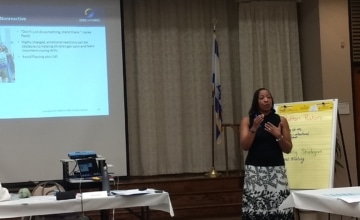Beyond limiting harm to infant-toddler programs, state leaders could take the opportunity to invest in a birth-5 system that equitably supports high quality services for infants and toddlers and preschool-age children.
Beyond investment in family child care, states can engage with programs and providers who support families who work nonstandard hours. Michigan’s state government recently invested in increasing the quality of subsidized, unlicensed child care programs, through the use of a pilot program that provided training for providers who often offered nonstandard hours of care for children and families. Providers each participated in 10 hours of approved training and became eligible to receive reimbursement from the state’s tiered reimbursement program. Some participating providers eventually sought licensure.
To read more about state strategies to strengthen infant-toddler care, while expanding pre-K read here.




